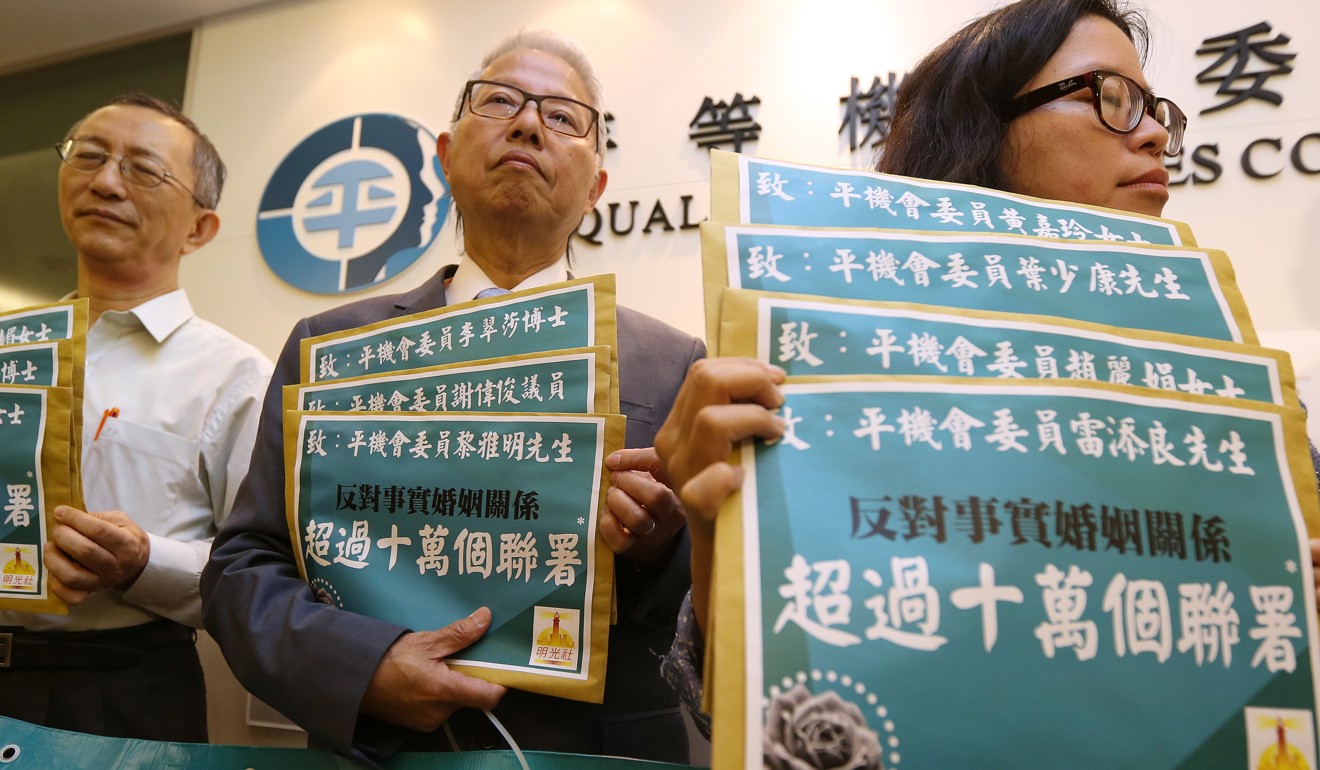
Can Hong Kong follow Taiwan’s lead on same-sex marriage and live up to its Asia’s World City tag?
David Ogilvie says that, despite setbacks, the signs are that the conditions and mindset are right for Hong Kong to claim its place as a true East-West melting pot, with a citizenry tolerant of all sexualities
First, religious tolerance. There are only a small number of anti-gay religious activists in Hong Kong, although they do appear to have a relatively vocal platform that belies their size.
Taiwan’s gay community celebrates ruling to legalise same-sex union
Leader of Hong Kong Christian group slams landmark ruling on spousal benefits for gay civil servants
Also, a surprisingly large number of politicians in Hong Kong profess to be devout Christians, although this does not of course automatically denote anti-gay or even anti-same-sex-marriage sentiment.
Hongkongers are increasingly unlikely to be swayed by the traditionalist views
The second issue is the level of civic freedom that Hong Kong enjoys. Homosexuality was decriminalised here in 1991 and, while anti-discrimination laws are only applied to government employees, many corporations have worked independently to adopt their own codes on this issue.

Legalise same-sex marriage in Hong Kong, Canadian envoy says
So, while these two issues offer a mixed bag for those advocating a more liberal approach to same-sex marriage locally, they are perhaps both trumped by the third and most important issue, which is the degree of acceptance a society has towards sexual minorities.
Hong Kong does pretty well in this regard: for example, a 2013 survey by the University of Hong Kong found that 66 per cent of respondents believed a sexual orientation anti-discrimination law should be enacted, whilst 33 per cent supported the legalisation of same-sex marriage or registered partnership outright.
Hong Kong Pride Parade 2016
Given that homosexuality no longer remains a taboo subject among Hong Kong youth, this number is likely to multiply: indeed, a more recent citywide representative survey by the Equal Opportunities Commission early last year found that 92 per cent of those aged 18 to 24 were in favour of further anti-discrimination legislation for sexual minorities, a trend aligned to a growing global consciousness on the issue.
Hong Kong ready for anti-discrimination laws to protect LGBT people, study says
Moreover, it seems that Hongkongers are increasingly unlikely to be swayed by the traditionalist views of local religious authorities any time soon, given the results of a WIN/Gallup International poll in 2015 that found Hong Kong was rated second lowest in the world in terms of religious belief – behind only China – with 34 per cent claiming they did not believe in a deity. Other polls have put that number far higher, with as much as 80 per cent stating that they do not have any particular religious affiliation.
It seems that the powers that be in Hong Kong will, therefore, face increasing pressure on this issue.
Strengthened anti-discrimination laws are inevitable, either through the government’s own initiative to bring Hong Kong more in line with global norms, or through forced change brought about by civil action groups via the judicial system. The issue of same-sex marriage will doubtless follow shortly behind and will need to be resolved in good time. The manner in which the government settles this matter dovetails nicely with our claim to be Asia’s World City, with a tolerant citizenry befitting an East-West melting pot.
David Ogilvie is a writer and commentator on local affairs

